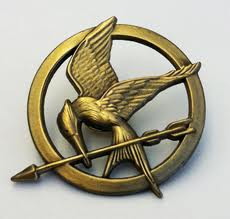April has been a great month, not only with the amount of reading that I’ve been able to do but also with the celebration of, firstly, my wife’s birthday and then my sister-in-law’s. Also during the month I was able to take a mini vacation from work, a great chance to recharge and enjoy some reading. In terms of reading, I managed to read more books than I imagined, including some great recent releases, a chilling classic and unfortunately a high amount of below average novels.
Surprisingly, I read a few Magic Realism books with The Snow Child by Eowyn Ivey and the massive 1Q84 by Haruki Murakami; while this genre is weird and not really my style, it was good to experience some the genre first hand. I also read a few novels that have recently been adapted into movies in preparation for their releases; The Rum Diary by Hunter S. Thompson and Extremely Loud and Incredibly Close by Jonathan Safran Foer. Overall this month has been a great month of reading for me, knocking out twelve different books.
Highlights for this month included the steampunkish action adventure novel Angelmaker by Nick Harkaway; imagine if Charles Dickens wrote a good James Bondish novel and that is what you’ll find in this book. Also the dark disturbing story of a woman suffering the effects and after effects of a very unhealthy relationship in Elizabeth Haynes’ brilliant debut novel Into the Darkest Corner. As well as the Henry James classic, a gothic horror masterpiece; The Turn of the Screw.
April’s Books
- Frankenstein: Prodigal Son by Dean Koontz

- The Rum Diary by Hunter S. Thompson

- A Perfectly Good Man by Patrick Gale

- The Hanging Garden by Patrick White

- Life of Pi by Yann Martel

- Past the Shallows by Favel Parrett

- The Snow Child by Eowyn Ivey

- Please Ignore Vera Dietz by A.S, King

- Extremely Loud and Incredibly Close by Jonathan Safran Foer

- The Turn of the Screw by Henry James

- Into the Darkest Corner by Elizabeth Haynes

- Angelmaker by Nick Harkaway


 Recently my mother complained about my taste in books, calling them difficult or weird books to read. This led to her saying that she wouldn’t trust me to recommend her a book because she wants light and frivolous books. I’ve recommended her two books in the past; one was The Shadow of the Wind by Carlos Ruiz Zafón which was not really light or frivolous but it is just a brilliant story and it has something for everyone in it; everyone except my mother. The other book was a lot lighter and easier to read, it was the exciting debut novel, S.J. Watson’s Before I Go To Sleep; which she didn’t like either. So what do I recommend to someone that doesn’t want to think or feel any sad thoughts?
Recently my mother complained about my taste in books, calling them difficult or weird books to read. This led to her saying that she wouldn’t trust me to recommend her a book because she wants light and frivolous books. I’ve recommended her two books in the past; one was The Shadow of the Wind by Carlos Ruiz Zafón which was not really light or frivolous but it is just a brilliant story and it has something for everyone in it; everyone except my mother. The other book was a lot lighter and easier to read, it was the exciting debut novel, S.J. Watson’s Before I Go To Sleep; which she didn’t like either. So what do I recommend to someone that doesn’t want to think or feel any sad thoughts?
 Title: Past The Shallows (
Title: Past The Shallows (
